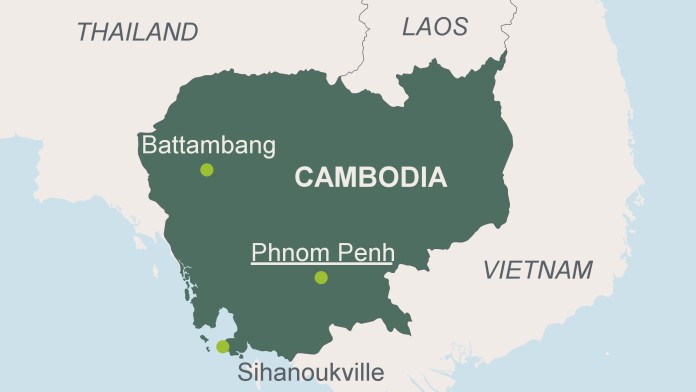
The Cambodian economy, which started out from a low level, was growing very dynamically by seven per cent each year until the onset of the coronavirus crisis. Nonetheless, Cambodia remains one of the poorest countries in Southeast Asia, and one of the least developed in the world.
KfW is supporting Cambodia on behalf of the Federal Ministry for Economic Cooperation and Development (BMZ) as part of Financial Cooperation with several projects in the core areas of
In consultation with other donors, KfW is supporting the Cambodian reform programme in the health sector and food security on behalf of the Federal Ministry for Economic Cooperation and Development (BMZ) with basket funding. These measures primarily aim to improve the management and quality of healthcare services and increase access for vulnerable groups within the population. Likewise, chronic diseases pose a growing challenge for the country. More than 50% of deaths are caused by chronic, non-communicable diseases.
Cambodia’s economic structure still lacks diversification. Poverty is still widespread, especially in rural areas. Diversifying the economy requires significant efforts to, among other things, expand rural infrastructure and thereby improve the rural population’s access to employment, education, markets and social services. This is why KfW, on behalf of the BMZ, is financing investments in rural roads, bridges, local markets and other social facilities. This improves people’s economic and social living conditions in many ways.
Nowhere in Asia is electricity more expensive than in Cambodia. Furthermore, there are regular power cuts in rural areas and T&D losses are high. Both factors impede economic development and mean that the energy sector has a disproportionately harmful effect on the environment. This is why KfW, on behalf of the BMZ, is financing investments in the more efficient use of electricity, especially in relation to electricity transmission in rural areas. This helps to increase the reliability of electricity supply and reduce T&D losses, thereby enabling additional house connections, reducing greenhouse gas emissions and thus contributing to climate change mitigation.
KfW Office Phnom Penh
Director KfW Office: Jenny Scharrer
6th floor, Unit 6C,
#146 Keystone Building,
Norodom Boulevard,
Sangkat Tonle Bassac,
Khan Chamkarmon,
Phnom Penh
Cambodia
+855 (23) 223 089 / 213 968
Fax: +855 (23) 215 443